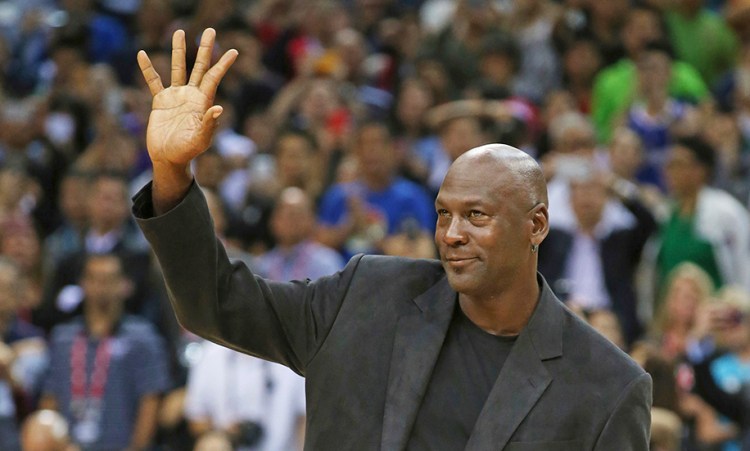BEIJING — China’s highest court on Thursday ruled in favor of basketball legend Michael Jordan at the culmination of a years-long case over use of the Chinese rendering of his globally-known name and trademark.
The former NBA star has been in a dispute with a sportswear company based in southern China called Qiaodan Sports since 2012. He had previously argued unsuccessfully in Beijing courts that they had used his Chinese name “Qiaodan” by which he has been known since he gained widespread popularity in the mid-1980s, his old jersey number 23 and basketball player logo to make it look like he was associated with their brand.
The Supreme People’s Court on Thursday announced that it was overturning two rulings by Beijing courts against Jordan from 2014 and 2015 that had found there wasn’t sufficient evidence to support the athlete’s allegations over the use of his image. It also ordered the trademark bureau to issue a new ruling on the use of the Chinese characters in the brand name “Qiaodan.”
Pronounced “CHEEOW-dan,” it is the transliteration of “Jordan” in Mandarin.
The court’s judgment was broadcast live on its website.
Jordan said in a statement that millions of Chinese fans and consumers had always known him by the name Qiaodan and that he was happy the court had recognized his right to protect his name.

A man shops for shoes at a Qiaodan Sports retail shop in Beijing Thursday. Numerous Chinese companies sell products with names that sound suspiciously similar to well-known foreign brands, often with only one or two letters changed.Associated Press/Ng Han Guan
“Chinese consumers deserve to know that Qiaodan Sports and its products have no connection to me. Nothing is more important than protecting your own name, and today’s decision shows the importance of that principle,” Jordan said.
In a twist to the legal saga, Qiaodan Sports successfully counter-sued Jordan in 2013 for preventing it from pursuing a stock market listing because of the trademark lawsuit.
The Beijing law firm representing Qiaodan Sports Co. Ltd. declined to comment.
The case reflects the difficulties faced by foreign individuals and companies in protecting their copyrights in China, where domestic firms have long taken a cavalier attitude toward intellectual property.
Numerous Chinese companies sell products with names that sound suspiciously similar to well-known foreign brands, often with only one or two letters changed.
Chinese law protects foreign companies in cases where their brand was already famous in China before being registered by a Chinese firm seeking to capitalize on its notoriety.
However, Apple Inc. lost a legal battle earlier this year when a Beijing court ruled the company had failed to prove that iPhone was a famous brand in China before a Chinese company applied for the “iPhone” trademark in 2007. The Chinese company uses “iPhone” on its handbags and mobile phone cases.
Send questions/comments to the editors.


